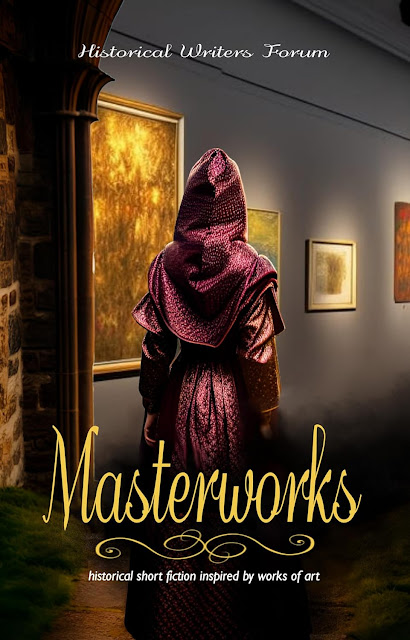Thank for inviting me, Cathie. I’ll go with coffee since you have the coffee pot on the hob already. And it will help me to keep my head clear.
Coffee it is, then. 😊 Before we begin, please introduce yourself.
I am probably best known for my crime fiction, the DI Gillian Marsh series and The Shires Mysteries. However, I am averse to being confined to any specific genre and throughout my writing career have experimented with magical realism, dystopia and now, of course, historical fiction.
I was born in Poland but spent a good half of my life in the Southern Hemisphere, first in South Africa, then in New Zealand. I am a passionate Europhile and was delighted to return to Europe over fifteen years ago and to settle in the South West of England. I live near the beautiful city of Bath with my English husband, Kiwi-born daughter, and a Romanian rescue dog.
Could you tell us a little about your new novel, Buried in the Past?
Buried in the Past switches between the WW2 Nazi occupation of Poland and the late eighties which witnessed the fall of the Berlin Wall and the disintegration of communist rule.
It tells the story of two young men, one Polish and the other Jewish, both determined to fight the Nazis to avenge the murder of their families and friends. Fate and their respective circumstances put them on two very different paths which ultimately cross with explosive consequences.
Forty years after WW2, a body dating back to the war is found in an unmarked grave on the land belonging to the Kitzmans, the relatives of the Polish man. His great-grandniece, Dorota, embarks on the mission to discover the identity of the dead person and preserve her family’s good name.
Many World War II novels that are currently published are set in France or Italy. Why did you choose Poland – and the Polish resistance – as a background?
It had to be Poland. I was born there and like the Kitzmans in my book I am of dual Polish-German heritage. Post-WW2 our German roots were buried deep underground and never mentioned as anybody with German links was vilified for the barbaric atrocities committed by the Nazis during the Occupation. Some of my relatives were expelled from the country after the war and expatriated to Germany even though, having lived in the country for generations, they considered themselves more Polish than German.
I also wanted to write about something that I knew. When studying for my law degree, I read political history of Europe with the focus on the history of Poland, so I felt at home within the Polish historical setting.
When researching your novel, did you come upon any unexpected surprises?
What came as the greatest surprise to me was a family revelation imparted to me by my father which inspired the entire story.
Years ago my father told me a story of a young Jewish man whose life had become inextricably entangled with our family during WW2. I didn’t quite know whether to take him seriously especially as his account of meeting that man was fragmented.
Some time later, I relayed that story to a woman from Israel who was able to access some records in her homeland and had the story verified as true. I was befuddled and fascinated at the same time.
My imagination fuelled, I began writing. That was twenty-five years ago. After a while, life took over and my passion for the story waned.
Some ten years ago, I was visiting family in Poland and happened to speak to my uncle who had just emptied my grandparents’ summer house in order to sell it. He showed me a ledger of rent receipts for shops and business premises let by my great-grandfather to his tenants before and during the war. I never knew our family had once owned a commercial estate (it had been destroyed in the war and never re-built), but that wasn’t the greatest surprise. The fact that the receipts had all been written in German was. From that moment, I had a solid background for my story.
Novels set during World War II are hugely popular. Why do you think they still fascinate readers?
They are still hugely relevant and we still have to learn from history to avoid the mistakes of our ancestors. The social and political trends of pre-war Europe led to the bloodiest and most inhumane armed conflict which inflamed the entire world and resulted in unimaginable losses of civilian life. Reading about it is a bit like scratching old wounds and letting them bleed all over again. Hurtful, yes, but we can’t possibly allow them to scab over. Those inter-war trends seem to surface every time we experience economic upheavals, financial crushes, pandemics and other cataclysmic events that unsettle the psyche of nations. Led by unscrupulous populists those nations could easily stray into militancy and intolerance.
On another level, WW2 stories bring out the deepest, most primeval responses in readers. They are about our human condition in all its (good and bad) glory – of what it means to be human. They are about courage, sacrifice and love as well as obsession, hatred and our propensity to do evil. Simply put, they ring true.
Does one of the main characters hold a special place in your heart? If so, why?
Dorota’s father, Jerzy. He reminds me of my father, a passionate idealist who lived in very confusing and treacherous times, trying his best to stick to his principles.
Knowing the outcome of the war as we do now, what piece of advice would you have given to one of your characters to make them act differently?
I don’t think that even with hindsight I would want to influence my characters’ actions. It is true, in my case at least, that characters take on lives of their own and go on to make decisions which I the writer cannot and should not change for fear of losing my characters’ authenticity. I wouldn’t want to put any of them at ease. I wouldn’t dare to give them any insights into the future. I just let them plough on and make their own mistakes.
What are you working on next?
Sharpe Books have accepted my proposal for a historical crime trilogy featuring Nicolaus Copernicus as a reluctant sleuth solving unsolvable crimes while he goes about his business of watching the stars and conceiving his revolutionary scientific theory. Again I feel enormous affinity with this historical figure who lived and worked as a humble Varmian canon in 15th century Poland.
At the moment I am enjoying researching his life and achievements as well as the historical background of the Polish-Lithuanian Commonwealth and the Teutonic Knights Order (two actors dominating the landscape in that era).
This is absolutely fascinating, Anna. I'll have to check out your novel.
Thank you for your time.
Thank you so much for having me, Cathie. I may now opt for a glass of sherry.











